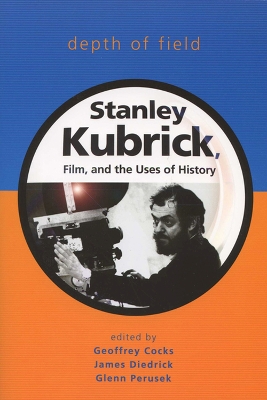Wisconsin Studies in Film
1 total work
Depth of Field
by G.L. Ercolini, Pat J. Gehrke, Diane Johnson, Tim Kreider, Vincent LoBrutto, Peter Lowenberg, and Mark Crispin Miller
Published 1 January 2006
Director of some of the most controversial films of the twentieth century, Stanley Kubrick created a reputation as a Hollywood outsider as well as a cinematic genius. His diverse yet relatively small oeuvre - he directed only thirteen films during a career that spanned more than four decades - covers a broad range of the themes that shaped his century and continues to shape the twenty-first: war and crime, gender relations and class conflict, racism, and the fate of individual agency in a world of increasing social surveillance and control. In ""Depth of Field"", leading screenwriters and scholars analyze Kubrick's films from a variety of perspectives. They examine such groundbreaking classics as ""Dr. Strangelove and 2001: A Space Odyssey"" and later films whose critical reputations are still in flux. ""Depth of Field"" ends with three viewpoints on Kubrick's final film, ""Eyes Wide Shut"", placing it in the contexts of film history, the history and theory of psychoanalysis, and the sociology of sex and power. Probing Kubrick's whole body of work, ""Depth of Field"" is the first truly multidisciplinary study of one of the most innovative and controversial filmmakers of the twentieth century.
